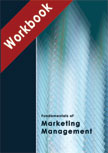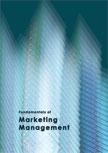The Tasty Bite Story
|
|
ICMR HOME | Case Studies Collection
Case Details:
Case Code : MKTG015
Case Length : 6 Pages
Period : 1986-2001
Pub Date : 2001
Teaching Note : Available
Organization : Tasty Bite Eatables Ltd, HLL
Industry : Food, Beverages & Tobacco
Countries : India
To download The Tasty Bite Story case study
(Case Code: MKTG015) click on the button below, and select the case from the list of available cases:

Price:
For delivery in electronic format: Rs. 200;
For delivery through courier (within India): Rs. 200 + Shipping & Handling Charges extra
» Marketing Case Studies
» Marketing Management Short Case Studies
» View Detailed Pricing Info
» How To Order This Case
» Business Case Studies
» Case Studies by Area
» Case Studies by Industry
» Case Studies by Company
Please note:
This case study was compiled from published sources, and is intended to be used as a basis for class discussion. It is not intended to illustrate either effective or ineffective handling of a management situation. Nor is it a primary information source.
Chat with us

Please leave your feedback

|
|
<< Previous
"Tasty Bite is a company that has virtually risen from the dead."
- A & M, in October 2000.
The Turnaround
|
In September 1998, stock market followers were surprised when the scrip of Tasty Bite Eatables Limited (TBEL), a small Ready-to-Serve (RTS)1 food company, reached Rs 36.
This was a 930% increase over its 1996 price of Rs 3.50.
What was even more surprising was the fact that till September 1998, TBEL was a Board for Industrial and Financial Reconstruction (BIFR)2 case.
Launched in the early 1990s, TBEL products were rejected by Indian consumers.
Analysts said that the products had been launched 'ahead of their time' in the
Indian markets.
|

|
(TBEL products were made available in a pouch, which had to
be boiled before serving.) Moreover, the fact that the products were priced very high added to their lackluster performance. However,
TBEL not only became the first Indian company to get itself de-registered from
BIFR within a year, it also emerged as the largest brand in the US ethnic foods
market. In 1999, the company posted its first ever profit of Rs 4.71 million.
|
|
By the end of 2000, TBEL had become a $ 5 million brand in the US retail market and its products were available in 6,000 stores across the US.
The Background
TBEL was formed in 1986 by Ravi Ghai (Ghai) and Ravi Kiran Aggarwal. Ghai was also the owner of the ice-cream brand Kwality, which was the market leader with a market share of over 50%. TBEL set up a unit to process 10,000 tonnes per annum (tpa) of frozen vegetables and 5000 tpa of RTS foods at Khutbao and Bhandgoan villages of Maharashtra at a cost of Rs 55.5 million... |
Excerpts >>
|
|









